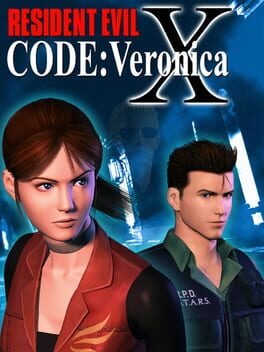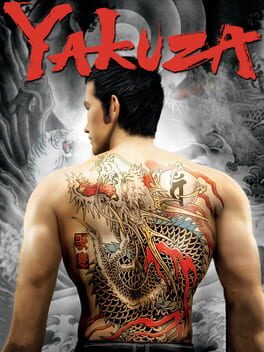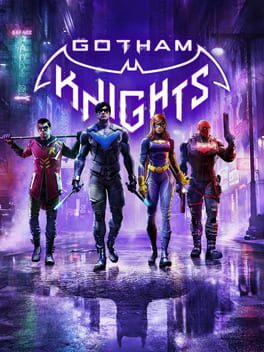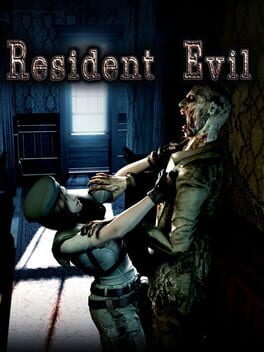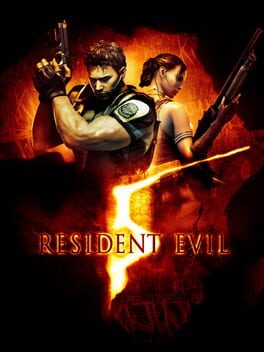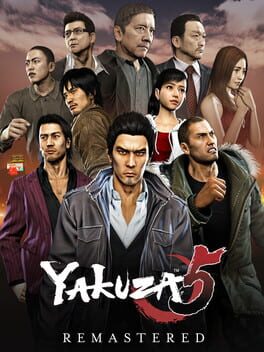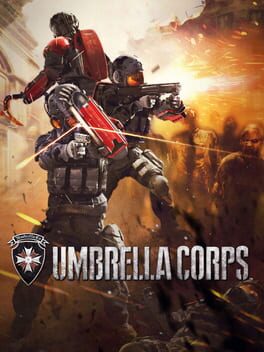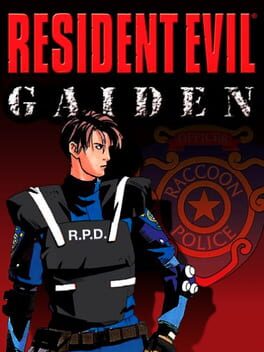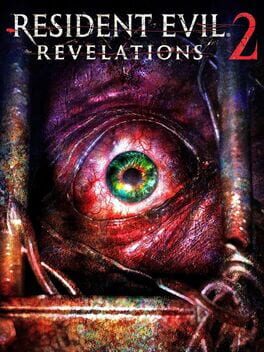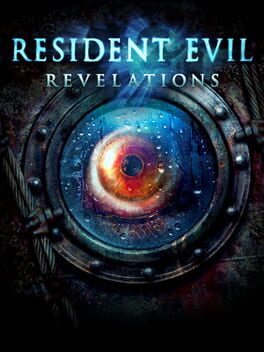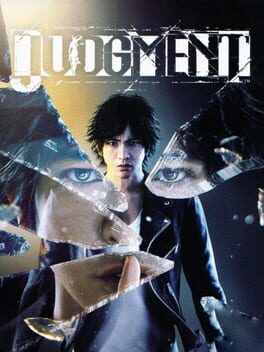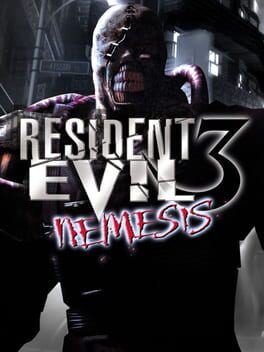Murph04
2017
“All the world will be your enemy, Prince with a Thousand Enemies, and whenever they catch you, they will kill you. But first they must catch you, digger, listener, runner, prince with the swift warning. Be cunning and full of tricks and your people shall never be destroyed.”
--Watership Down
Rain World one of those games where the line of "I like it because I think it's fun" and "I like it because I respect the work that went into it" is blurred.
Every enemy has observable behavior patterns, be it hunting, pack tactics, fear of environmental hazards, or symbiosis with other creatures. Looking at the behind the scenes it's impressive how it all fits together with the AI having separate ways of tracking through sight or vision. It truly feels like I am escaping a wild animal and not an enemy with a "pursue entity: [Player]" protocol.
And understanding that is what helps mitigate the frustrations when the simulation works against you. Three camouflaged lizards camping by the one path forward isn't the devs crafting a challenging encounter, that's just where their AI is telling them to gather because they're being chased out of their usual hunting grounds by a migrating tribe of Scavenger Monkeys.
Still, this can be used to your advantage, because the lizards are territorial and don't like sharing space with one another. Coax one to assault another and they may just leave enough of an opening for you to slip past.
90% of the time it works and feels like you're overcoming the odds of a world programmed against you by fighting back with your knowledge of it.
The other 10% of the time is when the simulation breaks down. You start to see the artifice in the design and things transcend from "Tolerable inconvenience" to "Bullshit Setback."
Because Rain World still needs to be a game with a goal and path forward, and this at times is incongruous with it's measured little world.
Much of the actual frustrations I had came at the fault of the rain mechanic. You're on a timer (with inconsistent length) at the start of each day to fill your belly and find shelter, and sometimes the path to shelter just isn't the path that food has spawned on, and vice-versa.
This wouldn't be so much a problem without the karma system preventing your passage to new areas. Survive a day with a full belly, your karma goes up a level, die and it goes down. At the entrance to new areas you'll be denied access if your karma isn't above a certain level. Get rejected and you now have to remain in the area you just got through, back tracking until you find reasonable hunting grounds and survive enough cycles to get your karma level requisite.
Grinding. It's grinding. And the grinding is never fun because of the aforementioned chaos and unfairness of the simulated ecosystem. Getting through an area by the skin of your teeth feels terrific, being told to go back and do it five more times is deflating.
And it's clear the devs became aware of this deficiency, because endgame areas simply start to include farmable food and shelters right outside the karma checkpoints. Were it not tied to the game's themes and story of cycles and rebirth, I'd question if the game even needs the karma system.
The true frustrations lie in a few gimmick areas causing deaths (and thus depleted karma) far outside the control or understanding of new players. A completely pitch black network of tunnels that causes eye strain, a complex of sentient cancer and zero gravity, and fields of carnivorous grass that can only be traversed on the back of a squishy deer that can sometimes just not spawn near you (this is oddly the worst one).
But as I walk away from Rain World, I can't stay mad at it. It's too fascinating a creation. A labor of passion and experimentation.
I will, inevitably, grit my teeth and dive back in again.
--Watership Down
Rain World one of those games where the line of "I like it because I think it's fun" and "I like it because I respect the work that went into it" is blurred.
Every enemy has observable behavior patterns, be it hunting, pack tactics, fear of environmental hazards, or symbiosis with other creatures. Looking at the behind the scenes it's impressive how it all fits together with the AI having separate ways of tracking through sight or vision. It truly feels like I am escaping a wild animal and not an enemy with a "pursue entity: [Player]" protocol.
And understanding that is what helps mitigate the frustrations when the simulation works against you. Three camouflaged lizards camping by the one path forward isn't the devs crafting a challenging encounter, that's just where their AI is telling them to gather because they're being chased out of their usual hunting grounds by a migrating tribe of Scavenger Monkeys.
Still, this can be used to your advantage, because the lizards are territorial and don't like sharing space with one another. Coax one to assault another and they may just leave enough of an opening for you to slip past.
90% of the time it works and feels like you're overcoming the odds of a world programmed against you by fighting back with your knowledge of it.
The other 10% of the time is when the simulation breaks down. You start to see the artifice in the design and things transcend from "Tolerable inconvenience" to "Bullshit Setback."
Because Rain World still needs to be a game with a goal and path forward, and this at times is incongruous with it's measured little world.
Much of the actual frustrations I had came at the fault of the rain mechanic. You're on a timer (with inconsistent length) at the start of each day to fill your belly and find shelter, and sometimes the path to shelter just isn't the path that food has spawned on, and vice-versa.
This wouldn't be so much a problem without the karma system preventing your passage to new areas. Survive a day with a full belly, your karma goes up a level, die and it goes down. At the entrance to new areas you'll be denied access if your karma isn't above a certain level. Get rejected and you now have to remain in the area you just got through, back tracking until you find reasonable hunting grounds and survive enough cycles to get your karma level requisite.
Grinding. It's grinding. And the grinding is never fun because of the aforementioned chaos and unfairness of the simulated ecosystem. Getting through an area by the skin of your teeth feels terrific, being told to go back and do it five more times is deflating.
And it's clear the devs became aware of this deficiency, because endgame areas simply start to include farmable food and shelters right outside the karma checkpoints. Were it not tied to the game's themes and story of cycles and rebirth, I'd question if the game even needs the karma system.
The true frustrations lie in a few gimmick areas causing deaths (and thus depleted karma) far outside the control or understanding of new players. A completely pitch black network of tunnels that causes eye strain, a complex of sentient cancer and zero gravity, and fields of carnivorous grass that can only be traversed on the back of a squishy deer that can sometimes just not spawn near you (this is oddly the worst one).
But as I walk away from Rain World, I can't stay mad at it. It's too fascinating a creation. A labor of passion and experimentation.
I will, inevitably, grit my teeth and dive back in again.
I don't think I'm one of those people that likes Code: Veronica.
It's a lot of little frustrations. For the first chunk of the game it just feels like there's a lack of healing items. I spent a full hour on red health before finding a single green herb.
The save rooms are in really out of the way locations, necessitating the most backtracking of any RE. At least they give you an obscene number of ink ribbons (seriously I had like, 30 stockpiled by the game's end).
I don't find the environments very visually interesting and some of the fixed camera angles are downright annoying, deliberately hiding enemies until you round a corner and they're in your face.
The puzzles are probably my least favorite part. RE3 showed what they could do with very natural feeling puzzles. Use a wrench on a busted pipe, get a battery from a broken car, etc. Code Veronica has puzzles like: "stab a sword into an iron maiden to open it, revealing a roll of sheet music you use on the piano to open a slot machine that contains a sapphire ant statue." I leaned on a guide way more than the other entries, mainly so I knew which items I would need to take with me so I didn't have to backtrack to the save rooms.
The bosses are really underwhelming or otherwise downright frustrating. The Tyrant on the plane is awful, and the last boss is mostly just an annoying speed bump.
What Veronica does have going for it is a really cool story. The Ashford Twins are a delightfully bizarre pair of antagonists and nouveau Wesker is a great ham. The new, John Woo inspired cutscenes give the game it's own distinct flavor and very clearly signal I've entered the more action-oriented phase of the franchise.
The failure of the story is that it includes Steve Burnside. Steve Burnside is a 3 meant to be a love interest for Claire who's a 9. Steve Burnside says every line like you're giving his nipple a good twist. Steve Burnside unironically owns Gamestop branded clothing. Steve Burnside only chews Spearmint gum because peppermint is too sharp for him. Steve Burnside once posted a 4chan thread listing all the reasons he and the Columbine shooters would have gotten along. Steve Burnside once had to be rushed to the hospital because he poked a beached jellyfish thinking "the sting can't hurt that bad." When you tell Steve Burnside to stop talking with his mouth full he sneers and sticks his food-laden tongue out. Steve Burnside gave the Snyder Cut 5 stars on principal. Steve Burnside destroyed his alienware laptop trying to mine bitcoin. All of Steve Burnside's gamecube controllers are made by madcatz.
It's a lot of little frustrations. For the first chunk of the game it just feels like there's a lack of healing items. I spent a full hour on red health before finding a single green herb.
The save rooms are in really out of the way locations, necessitating the most backtracking of any RE. At least they give you an obscene number of ink ribbons (seriously I had like, 30 stockpiled by the game's end).
I don't find the environments very visually interesting and some of the fixed camera angles are downright annoying, deliberately hiding enemies until you round a corner and they're in your face.
The puzzles are probably my least favorite part. RE3 showed what they could do with very natural feeling puzzles. Use a wrench on a busted pipe, get a battery from a broken car, etc. Code Veronica has puzzles like: "stab a sword into an iron maiden to open it, revealing a roll of sheet music you use on the piano to open a slot machine that contains a sapphire ant statue." I leaned on a guide way more than the other entries, mainly so I knew which items I would need to take with me so I didn't have to backtrack to the save rooms.
The bosses are really underwhelming or otherwise downright frustrating. The Tyrant on the plane is awful, and the last boss is mostly just an annoying speed bump.
What Veronica does have going for it is a really cool story. The Ashford Twins are a delightfully bizarre pair of antagonists and nouveau Wesker is a great ham. The new, John Woo inspired cutscenes give the game it's own distinct flavor and very clearly signal I've entered the more action-oriented phase of the franchise.
The failure of the story is that it includes Steve Burnside. Steve Burnside is a 3 meant to be a love interest for Claire who's a 9. Steve Burnside says every line like you're giving his nipple a good twist. Steve Burnside unironically owns Gamestop branded clothing. Steve Burnside only chews Spearmint gum because peppermint is too sharp for him. Steve Burnside once posted a 4chan thread listing all the reasons he and the Columbine shooters would have gotten along. Steve Burnside once had to be rushed to the hospital because he poked a beached jellyfish thinking "the sting can't hurt that bad." When you tell Steve Burnside to stop talking with his mouth full he sneers and sticks his food-laden tongue out. Steve Burnside gave the Snyder Cut 5 stars on principal. Steve Burnside destroyed his alienware laptop trying to mine bitcoin. All of Steve Burnside's gamecube controllers are made by madcatz.
2005
Yakuza 1 has a good foundation for building a future series.
The fighting is weighty and violent, the characters are likeable and memorable, and the story builds intrigue easily.
Issue is, the combat also has a feeling of stiffness, where you're either trapping an enemy in the corner and beating them to paste, or you're constantly swinging at air because there's no real lock-on or tracking for your punches. You'll also be getting into a lot of random fights, hearing the same generic dialogue, and executing the same combos.
The story is much the same way. It starts real strong, setting up pieces and intrigue and motivations, but just when it's reeling you in and you think you're about to get payoff it throws you into a series of fetch quests to pad for time and that promised payoff turns into a "Our Princess is in another castle" scenario. The characters I thought were going to be the main antagonists take a backseat in the final act, as it introduces a character out of nowhere to exposit how he was the mastermind all along.
Kiryu is an immediately likeable protagonist, and I hope many of the characters that actually survive the finale stick around for sequels.
Like I said it's a good foundation.
The fighting is weighty and violent, the characters are likeable and memorable, and the story builds intrigue easily.
Issue is, the combat also has a feeling of stiffness, where you're either trapping an enemy in the corner and beating them to paste, or you're constantly swinging at air because there's no real lock-on or tracking for your punches. You'll also be getting into a lot of random fights, hearing the same generic dialogue, and executing the same combos.
The story is much the same way. It starts real strong, setting up pieces and intrigue and motivations, but just when it's reeling you in and you think you're about to get payoff it throws you into a series of fetch quests to pad for time and that promised payoff turns into a "Our Princess is in another castle" scenario. The characters I thought were going to be the main antagonists take a backseat in the final act, as it introduces a character out of nowhere to exposit how he was the mastermind all along.
Kiryu is an immediately likeable protagonist, and I hope many of the characters that actually survive the finale stick around for sequels.
Like I said it's a good foundation.
2022
2002
Uh, this is one of the best designed games I've ever played.
I don't really know what to say. Every element just works to the games favor. There were no frustrating sections. I liked the lab this time. The Trevors are a horrific and tragic addition to the narrative that gives it emotional weight that the original lacked.
The game looks amazing and I was constantly on edge. The most "horror" of the franchise so far.
I don't really know what to say. Every element just works to the games favor. There were no frustrating sections. I liked the lab this time. The Trevors are a horrific and tragic addition to the narrative that gives it emotional weight that the original lacked.
The game looks amazing and I was constantly on edge. The most "horror" of the franchise so far.
2009
Resident Evil 5 is antithetical to anything that I enjoyed about Resident Evil. It is not a survival horror, but a struggle horror where disparate game design ideas and tone clash impotently until the game turns into a soup of particle worms. Chris Redfield punching a big magma boulder is the standout moment of this game strictly because it is the one moment of comedy in an otherwise joyless and pough-faced slog.
If I had to play this without a friend it would somehow be even lower because the prospect of having to do some of these sections with a 2009 AI partner sounds nightmarish
If I had to play this without a friend it would somehow be even lower because the prospect of having to do some of these sections with a 2009 AI partner sounds nightmarish
2019
Alright, I’m gonna try to reign in my negativity.
Yakuza 5’s biggest problem is that the story is bad. I feel confident in saying that. This is a bad, boring story that seeks to tell the biggest Yakuza tale yet. Split across 5 characters in 5 cities (steam page says 10, I don’t know why) the game is essentially an anthology for the first 4 acts before everything attempts to come together in the final chapter (which is just as long as those that preceded it). These individual character stories get better as they go on. I was confused by Kiryu’s chapter, bored by Saijima’s, but Akiyama and Haruka’s Pop Idol Murder Mystery was fun (even if Akiyama has no reason to be here). The best story is saved for last and nearly single-handedly saves the game. Tatsuo Shinada is a tragic dumbass and his story of redemption, betrayal, and found family is where the game is strongest. It is in no way worth having to play through the other chapters that preceded it.
The final chapter itself is a mess. Unlike Yakuza 4, which got right to the point of an 8-Way shirtless man fight, this one muddles around in lengthy cutscenes and confusing plot revelations. Multiple characters die over the course of Yakuza 5, except not really because you can just walk off multiple gunshot wounds. The final boss may be the best spectacle in the series, but narratively and thematically it makes 0 damn sense.
Because each act takes place in a new city, with a new cast, introducing new mechanics and mini-games specific to that character it means the game is in a constant state of tutorializing and expositing. By the time I was in the last chapter I had forgotten most everything that had happened in the first.
Mechanically, Yakuza 5 boasts the best combat so far. Everything is snappy and quick. The punches are the punchiest. The heat moves the most brutal. You can get a lightsaber. All good stuff. Its also the same light, light, heavy, heavy combo combat I’ve been doing since Yakuza 1 on the PS2. There’s a lot of avenues in this game to get stronger. Secret moves and weapons to unlock, mountains of XP to be gained from side-quests, but it doesn’t matter because light, light, heavy, heavy will serve you through every single combat encounter (provided you also get a generous supply of healing items, which are cheap as dirt to acquire). I desperately need the combat in this series to get a revamp.
What I can’t knock Yakuza 5 for is ambition. There is so much shit to do, including the entirety of Virtua Fighter 2, chicken racing, underground pool tournaments, air hockey, less-than-crazy taxi, etc. Each character gets an entire side-game devoted to them. Street Racing, Hunting, Idol performances, and baseball. Each is surprisingly complex with their own set of skills and unique items to unlock.
I didn’t really do any of them.
And maybe that’s why Yakuza 5 didn’t really rub off on me. I’ve seen some fan reviews that say if you take your time and explore everything its the best in the series, but if you just rush from story mission to story mission its one of the worst. My counter to that is this game took me 35 hours to beat even when I was rushing from story mission to story mission.
If the game had a shorter story I might have finished early and felt eager to check out all this fun sounding content, but right now I just want to move on.
Yakuza 5’s biggest problem is that the story is bad. I feel confident in saying that. This is a bad, boring story that seeks to tell the biggest Yakuza tale yet. Split across 5 characters in 5 cities (steam page says 10, I don’t know why) the game is essentially an anthology for the first 4 acts before everything attempts to come together in the final chapter (which is just as long as those that preceded it). These individual character stories get better as they go on. I was confused by Kiryu’s chapter, bored by Saijima’s, but Akiyama and Haruka’s Pop Idol Murder Mystery was fun (even if Akiyama has no reason to be here). The best story is saved for last and nearly single-handedly saves the game. Tatsuo Shinada is a tragic dumbass and his story of redemption, betrayal, and found family is where the game is strongest. It is in no way worth having to play through the other chapters that preceded it.
The final chapter itself is a mess. Unlike Yakuza 4, which got right to the point of an 8-Way shirtless man fight, this one muddles around in lengthy cutscenes and confusing plot revelations. Multiple characters die over the course of Yakuza 5, except not really because you can just walk off multiple gunshot wounds. The final boss may be the best spectacle in the series, but narratively and thematically it makes 0 damn sense.
Because each act takes place in a new city, with a new cast, introducing new mechanics and mini-games specific to that character it means the game is in a constant state of tutorializing and expositing. By the time I was in the last chapter I had forgotten most everything that had happened in the first.
Mechanically, Yakuza 5 boasts the best combat so far. Everything is snappy and quick. The punches are the punchiest. The heat moves the most brutal. You can get a lightsaber. All good stuff. Its also the same light, light, heavy, heavy combo combat I’ve been doing since Yakuza 1 on the PS2. There’s a lot of avenues in this game to get stronger. Secret moves and weapons to unlock, mountains of XP to be gained from side-quests, but it doesn’t matter because light, light, heavy, heavy will serve you through every single combat encounter (provided you also get a generous supply of healing items, which are cheap as dirt to acquire). I desperately need the combat in this series to get a revamp.
What I can’t knock Yakuza 5 for is ambition. There is so much shit to do, including the entirety of Virtua Fighter 2, chicken racing, underground pool tournaments, air hockey, less-than-crazy taxi, etc. Each character gets an entire side-game devoted to them. Street Racing, Hunting, Idol performances, and baseball. Each is surprisingly complex with their own set of skills and unique items to unlock.
I didn’t really do any of them.
And maybe that’s why Yakuza 5 didn’t really rub off on me. I’ve seen some fan reviews that say if you take your time and explore everything its the best in the series, but if you just rush from story mission to story mission its one of the worst. My counter to that is this game took me 35 hours to beat even when I was rushing from story mission to story mission.
If the game had a shorter story I might have finished early and felt eager to check out all this fun sounding content, but right now I just want to move on.
2016
The most important treasure gained in any retrospective is one of perspective. You get the grasp of how many different ways an IP can be twisted to fit certain molds. Resident Evil has seen spin-offs that are light gun games, Gameboy Color Zelda-style adventures, early experiments in online cooperative play, and now this: an attempt to fit the brand in to an e-sports shooter shaped hole.
Another important aspect of perspective is it allows you to truly see where just how low a franchise’s quality can get. Resident Evil Survivor is bad, but at least the voice acting and plot are hilarious. Operation Raccoon City is bad, but at least I see people that defend it and make fan art of its characters. Resident Evil 5 is bad, but at least Chris Redfield punches a boulder.
Umbrella Corps is bad without qualification. There is no reason to play this unless you’re me. The online component is dead which means you’re left with a bevy of single-player missions. There is no curiosity to be sated by seeking out this forgotten title.
The premise of this game is that, in the wake of RE5, other pharmaceutical companies are sending their own mercenaries into hotzones to collect data on T-virus, las plaga, and ourobouros. The multiplayer matches have the zombies as more of an environmental hazard, as they won’t harass you unless provoked or the enemy team sabotages your zombie stealth gadget. It is blatantly wanting to be a tactical shooter like Rainbow 6, with the level of movement and maps that encourage finding hidey-holes. If it had more than a year’s development time maybe it could have had a niche market like Valve’s Evolve.
The single-player mode drops you into these multiplayer maps and just has you fight the zombies while doing the same objectives from the multiplayer mode. There is a thin thread of narrative of you playing a character who is a clone/son/successor to Hunk being put through combat trials to test new zombie killing weapons. It is vaguely implied that the company you work for is being run by a returned Wesker. Or maybe it's a clone of Wesker. It may also be Krauser, or Saddler, or Spencer. It doesn’t matter, I learned too late that this game is no longer canon.
I won’t mince words. This game sucks. This game really sucks. This game sucks big, floppy, venereal diseased dicks bathed in the river of excrement from the eighth Circle of Hell. I rarely wish true ill on anyone, but I hope that each member of this game’s development team watches at least a single loved one melt before their eyes. Who the fuck decided that you can only take 3 hits before dying in maps that spawn five dogs that can swarm you in seconds? Who THE FUCK decided that wasn’t enough and each map also needed a super zombie that can one shot you with ridiculous hitboxes and requires multiple clips to kill? Why do enemies keep spawning behind me with no tells? Why do I have to keep doing missions with just one clip of ammo?
Countless times I was so near to victory, when suddenly I was ganked by a zombie that went 0 to 60 after spotting me across the map. Countless times I was in a good spot when a crow swooped from the heavens and pecked out half my health bar. I got so mad that I bit into my thumb and drew blood. No game has drawn the iron price from me. I one-hundred percented this game, even the optional objectives, so that it would hold no future power over me.
Much like how Resident Evil 1 Remake was one of the best games I’ve played, Umbrella Corps is one of the worst. It would not improve on an experience of me holding a controller and staring at a blank screen for six hours.
Another important aspect of perspective is it allows you to truly see where just how low a franchise’s quality can get. Resident Evil Survivor is bad, but at least the voice acting and plot are hilarious. Operation Raccoon City is bad, but at least I see people that defend it and make fan art of its characters. Resident Evil 5 is bad, but at least Chris Redfield punches a boulder.
Umbrella Corps is bad without qualification. There is no reason to play this unless you’re me. The online component is dead which means you’re left with a bevy of single-player missions. There is no curiosity to be sated by seeking out this forgotten title.
The premise of this game is that, in the wake of RE5, other pharmaceutical companies are sending their own mercenaries into hotzones to collect data on T-virus, las plaga, and ourobouros. The multiplayer matches have the zombies as more of an environmental hazard, as they won’t harass you unless provoked or the enemy team sabotages your zombie stealth gadget. It is blatantly wanting to be a tactical shooter like Rainbow 6, with the level of movement and maps that encourage finding hidey-holes. If it had more than a year’s development time maybe it could have had a niche market like Valve’s Evolve.
The single-player mode drops you into these multiplayer maps and just has you fight the zombies while doing the same objectives from the multiplayer mode. There is a thin thread of narrative of you playing a character who is a clone/son/successor to Hunk being put through combat trials to test new zombie killing weapons. It is vaguely implied that the company you work for is being run by a returned Wesker. Or maybe it's a clone of Wesker. It may also be Krauser, or Saddler, or Spencer. It doesn’t matter, I learned too late that this game is no longer canon.
I won’t mince words. This game sucks. This game really sucks. This game sucks big, floppy, venereal diseased dicks bathed in the river of excrement from the eighth Circle of Hell. I rarely wish true ill on anyone, but I hope that each member of this game’s development team watches at least a single loved one melt before their eyes. Who the fuck decided that you can only take 3 hits before dying in maps that spawn five dogs that can swarm you in seconds? Who THE FUCK decided that wasn’t enough and each map also needed a super zombie that can one shot you with ridiculous hitboxes and requires multiple clips to kill? Why do enemies keep spawning behind me with no tells? Why do I have to keep doing missions with just one clip of ammo?
Countless times I was so near to victory, when suddenly I was ganked by a zombie that went 0 to 60 after spotting me across the map. Countless times I was in a good spot when a crow swooped from the heavens and pecked out half my health bar. I got so mad that I bit into my thumb and drew blood. No game has drawn the iron price from me. I one-hundred percented this game, even the optional objectives, so that it would hold no future power over me.
Much like how Resident Evil 1 Remake was one of the best games I’ve played, Umbrella Corps is one of the worst. It would not improve on an experience of me holding a controller and staring at a blank screen for six hours.
2001
Resident Evil Gaiden is a fun little novelty. It takes the spirit of the franchise to the Gameboy Color with some interesting adaptations.
The combat is done through Mario Golf style timed button presses. It feels really satisfying and the enemy sprites are quite detailed and creepy. At many points you have to manage a party of three characters, each with their own health bar and weapons you can equip them with. It's a shame that there's only 2 enemy variants and a reused boss.
The plot involves a derelict cruise ship where Barry and Leon have to team up with a psychic girl to track down a new umbrella monster. The monster can shapeshift so there is some drama ala The Thing where the three characters can't trust each other as the ship is sinking. It's a more inventive plot than I was expecting. I guess the writer for Code Veronica wrote it with the intent of being canon, which would have been odd for the future of the series given twist ending is Leon is MIA and replaced by the creature.
It's flaws is that it has 1 music track and it's real easy to get lost on it's massive map. The keys say what doors they open rather than the other way around, which means if you don't know where the "Employee Lounge" is then you can mill around for a while listening the to the one 30 second loop of music.
For the time, and system, it was probably pretty fun.
The combat is done through Mario Golf style timed button presses. It feels really satisfying and the enemy sprites are quite detailed and creepy. At many points you have to manage a party of three characters, each with their own health bar and weapons you can equip them with. It's a shame that there's only 2 enemy variants and a reused boss.
The plot involves a derelict cruise ship where Barry and Leon have to team up with a psychic girl to track down a new umbrella monster. The monster can shapeshift so there is some drama ala The Thing where the three characters can't trust each other as the ship is sinking. It's a more inventive plot than I was expecting. I guess the writer for Code Veronica wrote it with the intent of being canon, which would have been odd for the future of the series given twist ending is Leon is MIA and replaced by the creature.
It's flaws is that it has 1 music track and it's real easy to get lost on it's massive map. The keys say what doors they open rather than the other way around, which means if you don't know where the "Employee Lounge" is then you can mill around for a while listening the to the one 30 second loop of music.
For the time, and system, it was probably pretty fun.
Revelations 2 feels like the franchise floundering to recapture the fans alienated by the post RE5 games.
"Look, we brought back Claire. We borrowed motifs from Code Veronica and Zero. We brought in a new Wesker. We made it scary again. We even brought back Barry Goddamn Burton and reference all his memey dialogue from RE1."
The issue is the game is just kinda dull?
I'll admit this is a scarier than previous fair, but it's gross-out horror more often than not. All the scare sequences just make me think of when the weird kid in class would spit on his hand, then try to chase you down to touch you with it.
It's biggest innovation is some interesting puzzle combat. Barry arrives to his campaign armed to the teeth, so he doesn't need to worry too much about scrounging for resources, so the game compensates with trickier enemies. His most common foe is a new take on Regenerators that only go down when a particular weakspot is shot, but Barry can't see where that weakspot it. His partner, a little psychic girl named Natalia, can. So those combat encounters involve swapping to Natalia to assess the situation, then back to Barry to unleash the lead. It may sound tedious, but it works really well in execution, especially once they start mixing in these invisible insectoids that slowly chase you down.
Claire's campaign doesn't have any of these nifty encounters and is pretty straight-forward copy of RE4 mechanics. The issue with Claire's campaign is her partner is Moira Burton. Moira is a teenager written by a 50 year old sailor trying to be hip. The shit that comes out of her mouth would make the writers of Riverdale envious. Not a single combat encounter goes by without Moira screaming how the monsters can get fucked, shit-on, or bent.
She is. The Female Steve Burnside.
I never see RE Fans talk about this one and I can see why. It's not bad, just enduringly meh.
"Look, we brought back Claire. We borrowed motifs from Code Veronica and Zero. We brought in a new Wesker. We made it scary again. We even brought back Barry Goddamn Burton and reference all his memey dialogue from RE1."
The issue is the game is just kinda dull?
I'll admit this is a scarier than previous fair, but it's gross-out horror more often than not. All the scare sequences just make me think of when the weird kid in class would spit on his hand, then try to chase you down to touch you with it.
It's biggest innovation is some interesting puzzle combat. Barry arrives to his campaign armed to the teeth, so he doesn't need to worry too much about scrounging for resources, so the game compensates with trickier enemies. His most common foe is a new take on Regenerators that only go down when a particular weakspot is shot, but Barry can't see where that weakspot it. His partner, a little psychic girl named Natalia, can. So those combat encounters involve swapping to Natalia to assess the situation, then back to Barry to unleash the lead. It may sound tedious, but it works really well in execution, especially once they start mixing in these invisible insectoids that slowly chase you down.
Claire's campaign doesn't have any of these nifty encounters and is pretty straight-forward copy of RE4 mechanics. The issue with Claire's campaign is her partner is Moira Burton. Moira is a teenager written by a 50 year old sailor trying to be hip. The shit that comes out of her mouth would make the writers of Riverdale envious. Not a single combat encounter goes by without Moira screaming how the monsters can get fucked, shit-on, or bent.
She is. The Female Steve Burnside.
I never see RE Fans talk about this one and I can see why. It's not bad, just enduringly meh.
2005
I have an RE4 hot take: Ashley is not a problem, I like her presence in the game and story.
For years I've heard people bitching about the game being a long escort mission and what a pain Ashley is, and now that I've played it my feelings are "what a bunch of babies"
I think it shows how strapped people are to find things to complain about the game. It's a game where organizing inventory is fun, how does that happen??
My main issues are the story is pretty paper thin (Krauser shows up and acts like he's been present the entire game, also that I'm supposed to know who he is), and too much time is spent in the castle.
Pretty good game.
For years I've heard people bitching about the game being a long escort mission and what a pain Ashley is, and now that I've played it my feelings are "what a bunch of babies"
I think it shows how strapped people are to find things to complain about the game. It's a game where organizing inventory is fun, how does that happen??
My main issues are the story is pretty paper thin (Krauser shows up and acts like he's been present the entire game, also that I'm supposed to know who he is), and too much time is spent in the castle.
Pretty good game.
RE7 was the only Resident Evil I have played before doing this massive series playthrough. I got it around launch because it was marketed as being very standalone. So this review is a retrospective with the added benefit of knowing it's context in the greater series.
It's almost a cliche to say that RE7 brings things back to basics for the franchise, but it does. This is a very small horror story, one smaller than the first game, and it's about survival and escape before any concept of international intrigue and bioterrorism. The game feels wildly fresh just by doing the shit that made Resident Evil famous, a true shocker for all involved.
It wears the influences of hillbilly horror on its sleeve with homages and sometimes direct callouts to Texas Chainsaw, Evil Dead, and Hills Have Eyes. The Baker family is a shot of personality into what was becoming a fairly sterile franchise. They ride the line beautifully between true horror and camp enjoyment. Yes, you don't want to be locked in a room with any of them, but you can't help but want to watch what they do next.
The game is the scariest it's been since REmake, maybe scarier. Even on this 2nd playthrough the sequences where I know I'm safe still have me unnerved because the sound design makes it clear that you are never alone on the Baker property.
Many say that the game falls apart in the last act, once you've dispatched the Bakers and turn to the true villain (who's twist reveal is the best in the series). Last time I played I agreed with that, but this time it didn't bug me as much. If the game is too long, it's only by an hour or so. The experience goes by super quick if you're not scouring the environment for every possible advantage.
My complaints are minimal. I think it could have used more enemy variety, the blood splatter on the screen showing your level of damage is obnoxious, and I think a lot of the gore and goo effects already look dated.
I love Ethan Winters so much.
It's almost a cliche to say that RE7 brings things back to basics for the franchise, but it does. This is a very small horror story, one smaller than the first game, and it's about survival and escape before any concept of international intrigue and bioterrorism. The game feels wildly fresh just by doing the shit that made Resident Evil famous, a true shocker for all involved.
It wears the influences of hillbilly horror on its sleeve with homages and sometimes direct callouts to Texas Chainsaw, Evil Dead, and Hills Have Eyes. The Baker family is a shot of personality into what was becoming a fairly sterile franchise. They ride the line beautifully between true horror and camp enjoyment. Yes, you don't want to be locked in a room with any of them, but you can't help but want to watch what they do next.
The game is the scariest it's been since REmake, maybe scarier. Even on this 2nd playthrough the sequences where I know I'm safe still have me unnerved because the sound design makes it clear that you are never alone on the Baker property.
Many say that the game falls apart in the last act, once you've dispatched the Bakers and turn to the true villain (who's twist reveal is the best in the series). Last time I played I agreed with that, but this time it didn't bug me as much. If the game is too long, it's only by an hour or so. The experience goes by super quick if you're not scouring the environment for every possible advantage.
My complaints are minimal. I think it could have used more enemy variety, the blood splatter on the screen showing your level of damage is obnoxious, and I think a lot of the gore and goo effects already look dated.
I love Ethan Winters so much.
Resident Evil Revelations is a better RE5 than RE5. Heck, it may be a better RE4 as well since it feels more like a sequel to the original trilogy. The story here is the same global conspiracy of the last couple RE games and movies, but here they actually establish all the players at the start and invest you in said conspiracy. The story isn't perfect, there's multiple fakeouts involving identical cruise ships and a C-Plot involving two characters named Jackass and Grinder, but there's also a good moody atmosphere and A+ creature design. You actually get to see Jill and Chris work as partners and the new cast gets some likeable shine on them. It turns out the first head of the BSAA was Columbo.
Combat is a run and gun shooter where you're scouring the environment for weapon upgrades more than you are ammo or heals. This is an RE game with no inventory management or save pressure and it works quite well. There's no sacrificing the tense atmosphere or combat pressure even though it's easier to shotgun a beast in the gizzard.
Honestly wish I had played this back on the 3DS where it initially released. I find it hard to imagine such a game running on that. Runtime was under 6 hours, but it still feels dense and satisfying.
Combat is a run and gun shooter where you're scouring the environment for weapon upgrades more than you are ammo or heals. This is an RE game with no inventory management or save pressure and it works quite well. There's no sacrificing the tense atmosphere or combat pressure even though it's easier to shotgun a beast in the gizzard.
Honestly wish I had played this back on the 3DS where it initially released. I find it hard to imagine such a game running on that. Runtime was under 6 hours, but it still feels dense and satisfying.
2018
Judgement is so close to being a top-tier Yakuza game. It fixes a lot of problems that have hung over the series but also introduces new ones.
Well, they're not so much "problems" as "Odious Additions." Judgment is a detective story, so they've added some detective gameplay. The game starts off with a 4 hour prologue introducing you to all the new detective stuff you can do. Tailing missions, looking for clues, spotting people in a crowd, presenting evidence, disguises, lockpicking!
The issue is, most of these mini-games fall by the wayside outside the first chapter, left to be used in the side cases. Those that do stick around, clue searching and tailing, lack engagement and come across half-baked (the fact that every search sequence in accompanied by a hidden mewling cat kinda robs them of any inquisitive or dramatic tone.)
When the detective elements work, they work great. Spotting a camera on a rooftop or calling out a flaw in witness testimony feel good in the moment and help set the noir tone. Other times it's things like "Find the lightswitch." The lightswitch isn't in any unique spot, It's where you expect the lightswitch to be, they just wanted to make that spot interactive for....??
The key ring is the most head-scratching inclusion. I don't know what the value gained here is other than a tiny XP bonus.
No, for most of Judgment's runtime it leans back on the Yakuza tradition of violence to solve problems. Here you get two styles to swap between: crane for crowd-control, and tiger for one-on-one. Most of the abilities you get are for tiger and the game actually doesn't throw hordes of foes at you like prior titles, so Crane by and large falls by the wayside.
Not that I mind this. The RPG elements have been greatly reduced. No longer are you doing twelve 5% increases to health at ramping XP costs. Instead there are 3 increases to health, each one doubling your bar. It may be simplified, but it feels more satisfying and each trip to the level up screen meant walking away with a tangible benefit (though it's still loaded with borderline useless perks like heat moves exclusive to fighting in a convenience store).
What raises Judgment up is it's narrative. Completely seperate from the mainline games, this is a great noir story about lingering regret and corruption. The story is maybe two chapters longer than it needs to be, but I enjoyed the more grounded story. Yagami doesn't have the immediate likability of prior franchise leads, but he does have strong "just a dude" energy that gives him a John Mclain feeling.
Some may find the main story forcing you into side missions to progress the plot annoying. It's certainly something I've complained about in prior titles, but here I didn't mind it. For starters there's no point where they interrupt any forward action, instead acting as time killers while waiting for a phone call or the events to progress. It gives a kind of a TV show feeling, where the main mystery builds gradually amidst "case of the week" type missions. It helps to build the very likeable cast of characters. I'd actually hazard to say that this is one of the best casts of any Yakuza game.
The big gold star Judgment gets is that in the last chapter a last hour antagonist isn't introduced to explain how he was the mastermind all along and also the head of the illuminati somehow. Here the main antagonist becomes clear half-way through, but like any good detective story the thrust becomes about uncovering how they did it. It unfurls very naturally with a thrilling final set piece. If there's any final BS revelation in line with prior titles it's to do with a particular method of execution and the reasons for doing so are so goofy it loops around to being palatable.
Best part of the narrative is how it actually ties to Yagami's arc of regret and lost faith in his judgment (Hey, that's the name of the show!) It has shades of Saejima's arc in Yakuza 4, which is still the best Yakuza game and probably why I liked this one so much.
For those that view the Yakuza franchise as a vehicle for playing SEGA roms, then this game has you covered with all of Virtua Fighter 2 & 5, and Fighting Vipers. Weirdly a lot of normal side activities have been removed, probably to make room for the detective missions. Drone racing is a banger though, and best addition since cabaret management.
Honestly my feelings on Judgment could go either way. I can see how the shake-up to the formula could be found lacking enough to drag down the experience. For me, the narrative saves it from a lower score and I'd probably consider this a personal favorite. If they had trimmed a bit of the fat then this would easily be an S-tier entry in the series.
Well, they're not so much "problems" as "Odious Additions." Judgment is a detective story, so they've added some detective gameplay. The game starts off with a 4 hour prologue introducing you to all the new detective stuff you can do. Tailing missions, looking for clues, spotting people in a crowd, presenting evidence, disguises, lockpicking!
The issue is, most of these mini-games fall by the wayside outside the first chapter, left to be used in the side cases. Those that do stick around, clue searching and tailing, lack engagement and come across half-baked (the fact that every search sequence in accompanied by a hidden mewling cat kinda robs them of any inquisitive or dramatic tone.)
When the detective elements work, they work great. Spotting a camera on a rooftop or calling out a flaw in witness testimony feel good in the moment and help set the noir tone. Other times it's things like "Find the lightswitch." The lightswitch isn't in any unique spot, It's where you expect the lightswitch to be, they just wanted to make that spot interactive for....??
The key ring is the most head-scratching inclusion. I don't know what the value gained here is other than a tiny XP bonus.
No, for most of Judgment's runtime it leans back on the Yakuza tradition of violence to solve problems. Here you get two styles to swap between: crane for crowd-control, and tiger for one-on-one. Most of the abilities you get are for tiger and the game actually doesn't throw hordes of foes at you like prior titles, so Crane by and large falls by the wayside.
Not that I mind this. The RPG elements have been greatly reduced. No longer are you doing twelve 5% increases to health at ramping XP costs. Instead there are 3 increases to health, each one doubling your bar. It may be simplified, but it feels more satisfying and each trip to the level up screen meant walking away with a tangible benefit (though it's still loaded with borderline useless perks like heat moves exclusive to fighting in a convenience store).
What raises Judgment up is it's narrative. Completely seperate from the mainline games, this is a great noir story about lingering regret and corruption. The story is maybe two chapters longer than it needs to be, but I enjoyed the more grounded story. Yagami doesn't have the immediate likability of prior franchise leads, but he does have strong "just a dude" energy that gives him a John Mclain feeling.
Some may find the main story forcing you into side missions to progress the plot annoying. It's certainly something I've complained about in prior titles, but here I didn't mind it. For starters there's no point where they interrupt any forward action, instead acting as time killers while waiting for a phone call or the events to progress. It gives a kind of a TV show feeling, where the main mystery builds gradually amidst "case of the week" type missions. It helps to build the very likeable cast of characters. I'd actually hazard to say that this is one of the best casts of any Yakuza game.
The big gold star Judgment gets is that in the last chapter a last hour antagonist isn't introduced to explain how he was the mastermind all along and also the head of the illuminati somehow. Here the main antagonist becomes clear half-way through, but like any good detective story the thrust becomes about uncovering how they did it. It unfurls very naturally with a thrilling final set piece. If there's any final BS revelation in line with prior titles it's to do with a particular method of execution and the reasons for doing so are so goofy it loops around to being palatable.
Best part of the narrative is how it actually ties to Yagami's arc of regret and lost faith in his judgment (Hey, that's the name of the show!) It has shades of Saejima's arc in Yakuza 4, which is still the best Yakuza game and probably why I liked this one so much.
For those that view the Yakuza franchise as a vehicle for playing SEGA roms, then this game has you covered with all of Virtua Fighter 2 & 5, and Fighting Vipers. Weirdly a lot of normal side activities have been removed, probably to make room for the detective missions. Drone racing is a banger though, and best addition since cabaret management.
Honestly my feelings on Judgment could go either way. I can see how the shake-up to the formula could be found lacking enough to drag down the experience. For me, the narrative saves it from a lower score and I'd probably consider this a personal favorite. If they had trimmed a bit of the fat then this would easily be an S-tier entry in the series.
RE3 is my favorite of the original trilogy. Wonderfully detailed and grim environments show a city gone to Hell that are a joy to explore. Constant forward moment allowing for a sense of urgency the other two sometimes lacked. The puzzles are organic and do nicely to break up the combat. Minimal frustrating parts (save the Nemisis Courtyard fight), and a very satisfying ending.
I thought I'd be annoyed by the faster enemies, but the environments are built with them in mind and you're constantly feeling the dread of what lies around the corner. It feels the most survival horror of the series.
It actually makes me look a bit worse on RE2 because now I can better appreciate the haunted house atmosphere of RE1 as being unique to it, whereas 2 now feels like growing pains to RE3.
I thought I'd be annoyed by the faster enemies, but the environments are built with them in mind and you're constantly feeling the dread of what lies around the corner. It feels the most survival horror of the series.
It actually makes me look a bit worse on RE2 because now I can better appreciate the haunted house atmosphere of RE1 as being unique to it, whereas 2 now feels like growing pains to RE3.

